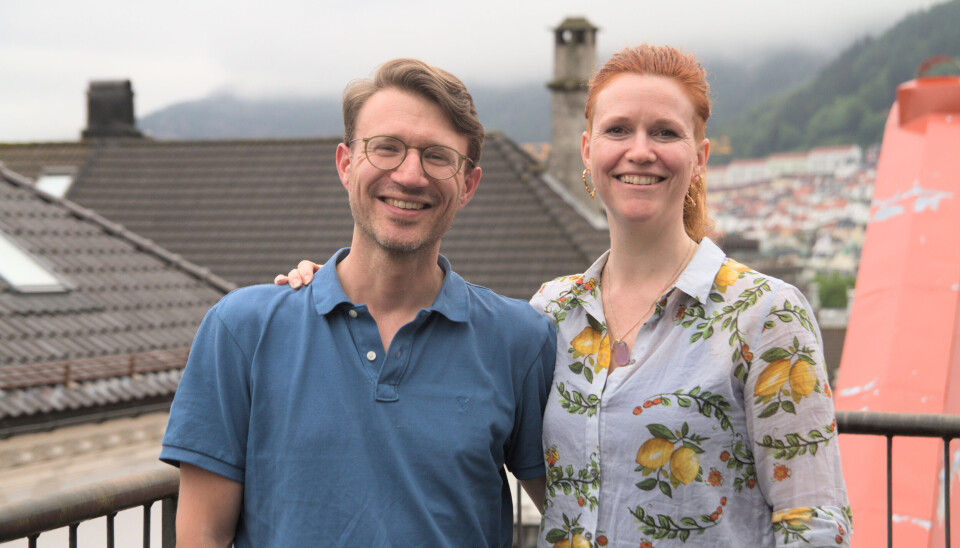THIS CONTENT IS BROUGHT TO YOU BY the University of Bergen - read more

Study reveals the key to successful climate policies
“If climate policies want to be successful, they must be about more than climate,” Michaël Tatham says.
The yellow vest movement in France, sparked by a fuel tax hike, illustrates the complexities of implementing climate policies.
A recent study on Norwegian citizens reveals that people may be willing to accept ambitious green policies if redistribution measures are also implemented.
Taxing fuel is considered one of several important measures to reduce climate emissions.
“If you make fuel more expensive, it makes it more interesting to find alternatives. And if you decrease fuel consumption, you decrease emissions in a mechanical way. So this can be seen as a necessary policy. CO2 needs to be made more expensive,” says Michaël Tatham.
He is a professor at the University of Bergen's Department of Comparative Politics.
An example of failed policy
But when French President Emmanuel Macron raised the fuel tax in 2018, he was met with protests. The policy was met with outrage, protests, and repeated demonstrations from a grassroots movement called the yellow vests.
In the end, Macron had to reverse the tax increase.
“This is an illustration of a policy failure. And the reason wasn't that people didn’t believe in climate change, or didn’t believe that this policy was necessary," says Tatham.
He explains that the cost for individual citizens was perceived as being too high and unfair, because it affected some sections of society more than others.
One of the slogans of the yellow vests was ‘end of the world, end of the month: change the system, not the climate.’
Tatham explains that while everyone cares about the end of the world, the urgency diminishes when the immediate concern is making ends meet at the end of the month. In such cases, the end of the world feels much farther away and less urdent compared to the end of each month.
Few choices
Those most affected by Macron's tax increase were people living in rural areas. They used fuel for heating and had no access to public transport. They had no alternatives to using cars.
“These people don’t have much of a choice in their consumption, and they often don’t have a high income. If politicians decide to make something more expensive, it hurts these people a lot more than wealthier people living in urban areas, with more options at their disposal,” Tatham says.
Support gaps
Michaël Tatham and Professor Yvette Peters, also at the Department of Comparative Politics, were interested in finding out if there is a way to implement ambitious climate policies while also gaining public support. They also wanted to find out if there is a parallel to the yellow vest-movement in Norway.
The two researchers therefore conducted a survey on Norwegian citizens. They examined how different policy characteristics create ‘support gaps’ in society.
The researchers compared well-educated people living in cities with less educated people living in the countryside and found that opposition to policies increases as the costs to individuals rise, but not in a straightforward way.
Must be about more than just climate
The study shows that policymakers can reduce the gap between these two groups if they use the money from a fuel tax to redistribute to lower-income households.
Tatham notes that their study demonstrates Norwegians' willingness to accept up to a 35 per cent increase in fuel prices, despite the expense, if other measures are included, such as redistribution to lower-income households.
"This way people who have less money get something back from the tax. It means that you correct for some of the disproportionality in how the policy harms people with a lower income,” he says.
One of the key findings from the study is that if climate policies are to be successful, they must address more than just the climate.
“They have to address the consequences that the policy will have for society in general,” Tatham says.
Could happen in Norway
Tatham and Peters’ study stands out because it examines how policy affects people differently depending on who they are.
Tatham says that individual characteristics, such as living in rural areas and having less education, significantly influence how policies affect people.
He notes that if a group consistently feels disadvantages and realises there are other people who identify with them, they may form a group identity and mobilise and express their discontent.
"This is what happened with the yellow vests in France, and it could
happen with what we call the yellow vests in Norway,” he says.
Yvette Peters says there are political signs in Norway that resemble the lead-up to the yellow vest movement.
“We haven’t seen yellow vest-type demonstrations here in Norway, but the rise of parties like the People's Party FNB/People's Action No to More Road Tolls and the Industry and Business Party signals that these issues are at stake,” she says.
Less represented
Previous research has found that the preferences of those with less educated and lower wages have less influence on politics.
“They are less represented. This means that what governments propose does not fit with their preferences,” Peters says.
Peters and Tatham emphasise the importance of politicians clearly communicating what they are doing and what measures their policies consist of.
“In France, Macron and his government had some compensatory policies, but many citizens didn’t know about them, and these policies were not strong enough. They should have done much more,” Tatham says.
Winners and losers
“What would be your message to politicians?”
“All climate and energy policies will have some negative consequences for citizens. If you change something, you create winners and losers. Make sure that you think about the consequences for subgroups, including the groups which are less often represented,” says Tatham.
“Do you have hopes for the future?”
“Yes, I do. We need ambitious climate policies, and our research shows that this is politically possible – if these policies are about more than climate change, addressing people’s daily challenges and concerns. Hopefully, this research will end up on some policymakers' desk,” says Peters.
Reference:
Tatham, M. & Peters, Y. Fueling opposition? Yellow vests, urban elites, and fuel taxation, Journal of European Public Policy, vol. 30, 2024. DOI: 10.1080/13501763.2022.2148172

This content is paid for and presented by the University of Bergen
This content is created by the University of Bergen's communication staff, who use this platform to communicate science and share results from research with the public. The University of Bergen is one of more than 80 owners of ScienceNorway.no. Read more here.
More content from the University of Bergen:
-
Early human innovation: Was climate really the cause?
-
The proteins in your blood can reveal early signs of heart problems
-
Electricity against depression: This may affect who benefits from the treatment
-
Quantum physics may hold the key to detecting cancer early
-
Researcher: Politicians fuel conflicts, but fail to quell them
-
The West influenced the Marshall Islands: "They ended up creating more inequality"




































